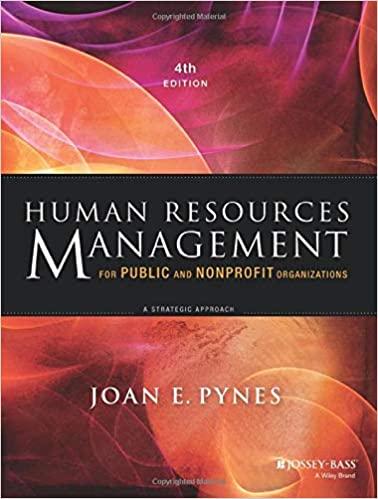Using arrest and conviction records as a basis for employment decision may violate Title VII if employers
Question:
Using arrest and conviction records as a basis for employment decision may violate Title VII if employers fail to take certain precautionary measures. According to enforcement guidance released by the Equal Employment Opportunity Commission (EEOC) on April 25, 2012, asking about arrests may have a disparate impact on African Americans and Hispanics. An employer may treat a conviction as evidence that an applicant engaged in criminal conduct. The EEOC recommends as a “best practice that employers do not ask about convictions on job applications because the employer is more likely to assess the relevance of an applicant ’s conviction once the employer is knowledgeable about an applicant ’s qualifications and experience.” If employers make inquiries about criminal convictions, the inquiries should be limited to convictions that would be related to the position in question and consistent with business necessity. The EEOC recommends that the employer (1) validate the criminal conduct screen for the position according to the Uniform Guidelines on Employee Selection Procedures, or (2) develop a targeted screen that considers the crime, the time elapsed, and the nature of the job, and then provides an opportunity for an individual assessment of people excluded by the screen.
1. What criteria would you choose in developing an employment policy for assessing an applicant’s prior arrests?
2. What criteria would you choose in developing an employment policy for assessing an applicant’s prior convictions?
3. Are the policies the same or are they different? Explain your answer.
Step by Step Answer:

Human Resources Management For Public And Nonprofit Organizations A Strategic Approach
ISBN: 9781118398623
4th Edition
Authors: Joan E. Pynes





